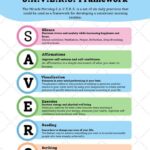“People don’t remember what we think is important; they remember what they think is important.”
In Everyone Communicates, Few Connect: What the Most Effective People Do Differently, master communicator and leadership author John C. Maxwell shares five principles and five practices to develop connection skills needed to become an effective communicator. He also highlights strategies for connecting with people one-on-one, in a group and in an audience. He recommends communicating in ways that consistently build potent connections. Maxwell asserts that everyone communicates, but the authentic communicator takes the time to know their audience, hone their message and present it in a simple way that the audience would quickly grasp.
Maxwell often said, “Educators take something simple and make it complicated. Communicators take something complicated and make it simple” The job of the communicator is to simplify complex concepts, and the most effective leaders take it a step further by connecting with their audience.
Everyone Communicates, Few Connect Theme
- The most effective leaders know how to connect with people. It’s not about power or popularity, but about making the people around you feel heard, comfortable, and understood.
Favourite Takeaways – Everyone Communicates, Few Connect by John C. Maxwell.
The five principles and practices for becoming a better connector & communicator:
- Focusing on others
- Expanding your connecting vocabulary beyond just words
- Marshalling your energy for connecting
- Gaining insight in how great connectors connect.
- Finding common ground
- Making your communication simple
- Capturing people’s interest
- Inspiring them, and
- Being authentic.
CONNECTING IS KEY
Connecting is the ability to identify with people and relate to them in a way that increases your influence with them. Because the ability to communicate and connect with others is a major determining factor in reaching your potential. To be successful, you must work with others. And to do that at your absolute best, you must learn to connect.
“Talk is easy. Everybody talks. The question is, how can you make your words count? It’s not enough just to work hard. It’s not enough to do a great job. To be successful, you need to learn how to really communicate with others.”
CONNECTING IS ALL ABOUT OTHERS
Good teachers, leaders, and speakers don’t see themselves as experts with passive audiences they need to impress. Nor do they view their interests as most important. Instead, they see themselves as guides and focus on helping others learn. Because they value others, they work at connecting with the people they are teaching or trying to help.
As Calvin Miller says, when most people listen to others speak, they are silently thinking,
- I am loneliness waiting for a friend.
- I am weeping in want of laughter.
- I am a sigh in search of consolation.
- I am a wound in search of healing.
- If you want to unlock my attention, you have but to convince me you want to be my friend.
You can connect with others if you’re willing to get off your own agenda, to think about others, and to try to understand who they are and what they want. If you really want to help people, connecting becomes more natural and less mechanical. It goes from being something that you merely do to becoming part of who you really are. If you’re willing to learn how to connect, you will be amazed at the doors that will open to you and the people you will be able to work with. All you have to do is keep reminding yourself that connecting is all about others.
“Whenever people take action, they do so for their reasons, not yours or mine. That’s why we have to get on their agenda and try to see things from their point of view. If we don’t, we’re just wasting their time and ours.”
WHAT PEOPLE UNDERSTAND— CONNECTING INTELLECTUALLY
To effectively connect with people on an intellectual level, you must know two things: your subject and yourself. The first is rather obvious. Everyone’s heard another person expound on a subject about which he knows nothing.
“If you want to win over another person, first win his heart, and the rest of him is likely to follow.”
Know Yourself—Personal Preparation.
“I tell people that to add value to others, they must make themselves more valuable. You can’t give something you don’t have. You can’t tell what you don’t know. You can’t share what you don’t feel. No one gives out of a vacuum.”
You can’t give something you don’t have. You can’t tell what you don’t know. You can’t share what you don’t feel.
Know Your Audience—People Preparation.
Connecting with people begins with knowing people. The more you understand about people in general, the better you will be able to connect. The more you know about the specific people you are trying to connect with, the better off you will be. If you don’t have clarity concerning your listeners, your message will be muddy.
“There is a great deal of difference between knowing and understanding. You can know a lot about something and not really understand it.” – Inventor Charles F. Kettering
All the best in your quest to get better. Don’t Settle: Live with Passion.



Comments are closed.